Power and progress
Livestream
Press
«Ich fürchte, das Jahr 2025 markiert den Wendepunkt zum Niedergang der USA» NZZ Interview von Albert Steck und Peter A. Fischer 8.2.2025 lesen
Wir überfordern die Demokratie NZZ Kommentar von Peter A. Fischer 3.2.2025 lesen
“Whoever controls Artificial General Intelligence, controls the world” UZH News 31.1.2025 read
«Entscheidungen von heute formen die KI der Zukunft» UZH News 31.1.2025 lesen
Better AI for shared prosperity
Artificial intelligence has lately been reshaping nearly every sector of the economy, raising profound questions about the future of work, wealth, and power. Will these advancements enhance the intelligence and performance of human beings, or will they deepen inequality and keep on establishing power among a privileged few? In his lecture at UZH, Nobel laureate Daron Acemoğlu highlights the necessity of implementing suitable AI regulations to benefit society.
Artificial intelligence has lately been reshaping nearly every sector of the economy, raising profound questions about the future of work, wealth, and power. Will these advancements enhance the intelligence and performance of human beings, or will they deepen inequality and keep on establishing power among a privileged few? In his lecture at UZH, Nobel laureate Daron Acemoğlu highlights the necessity of implementing suitable AI regulations to benefit society.
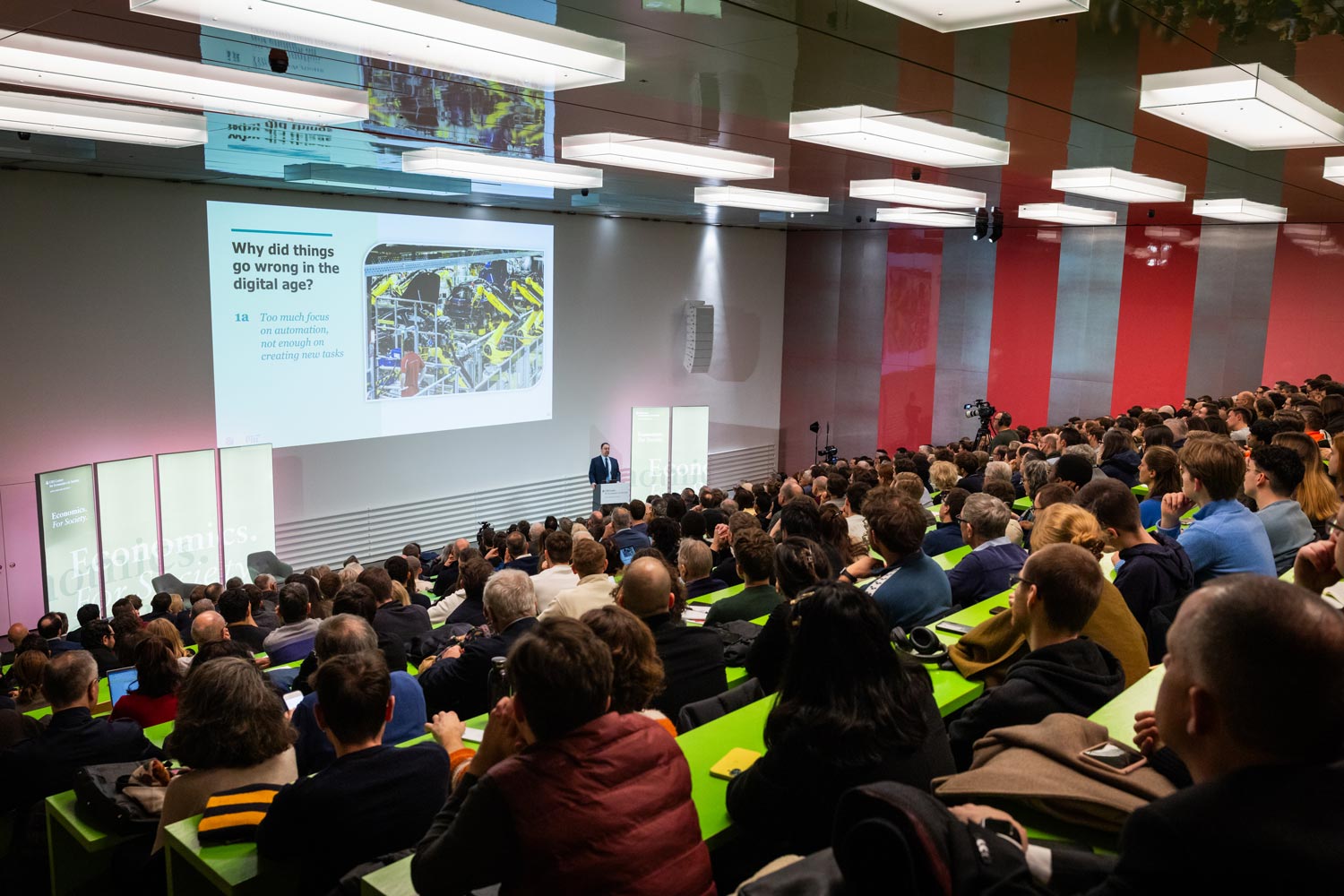
Gallery
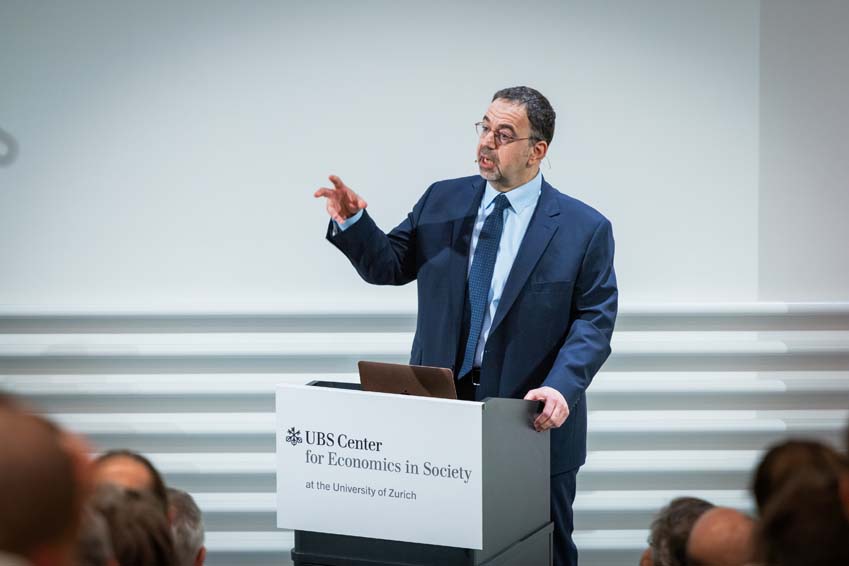
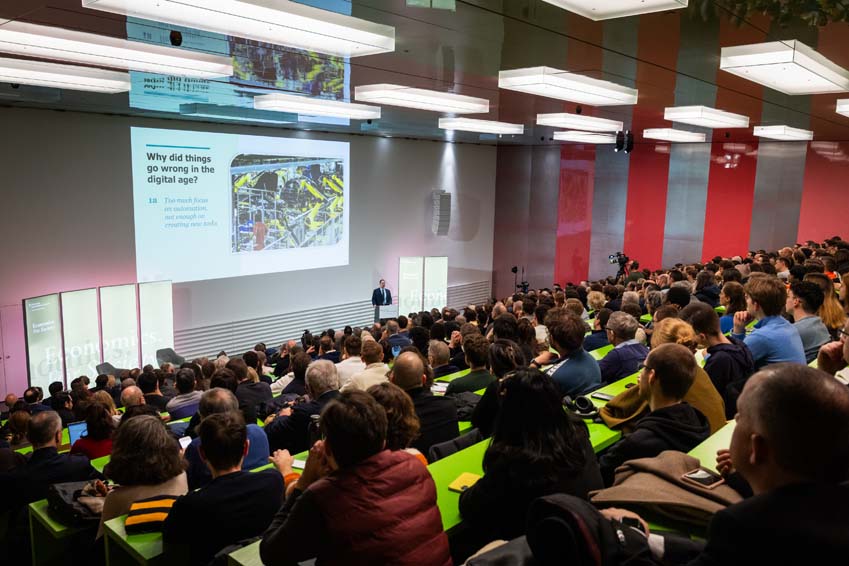
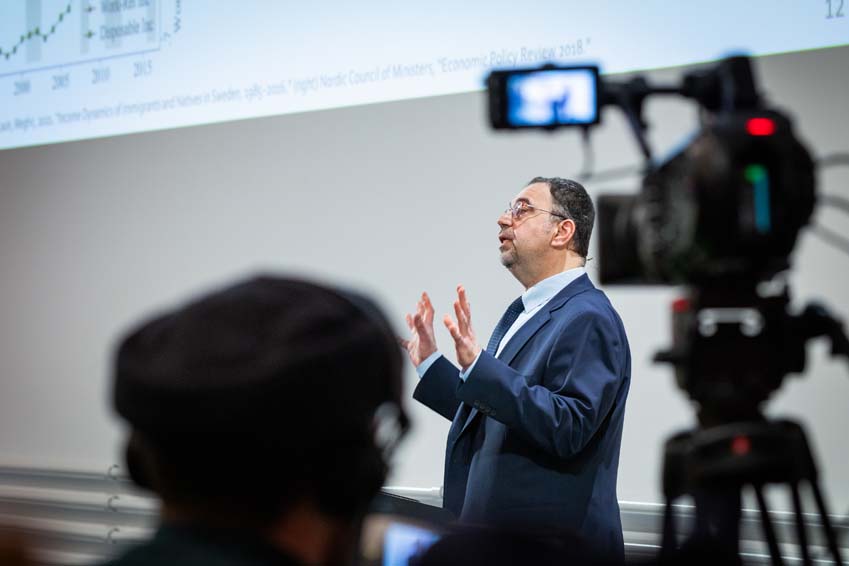
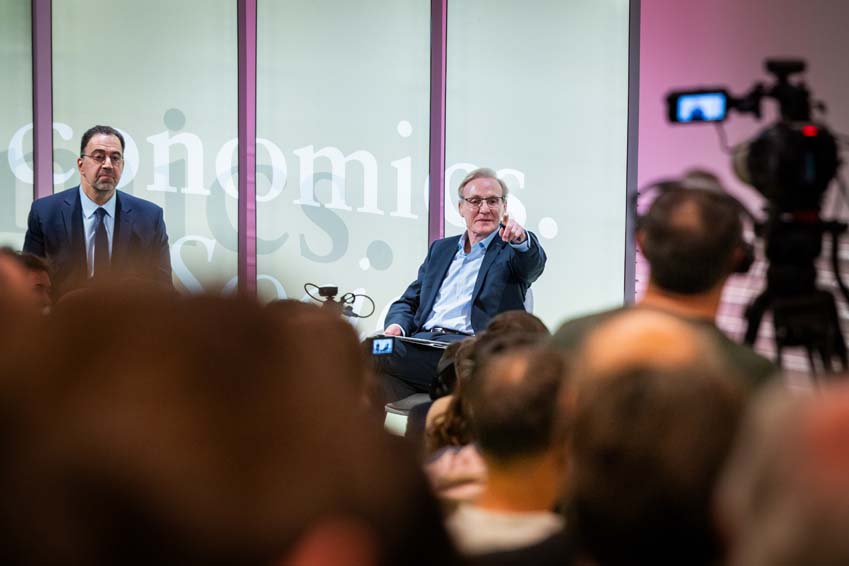


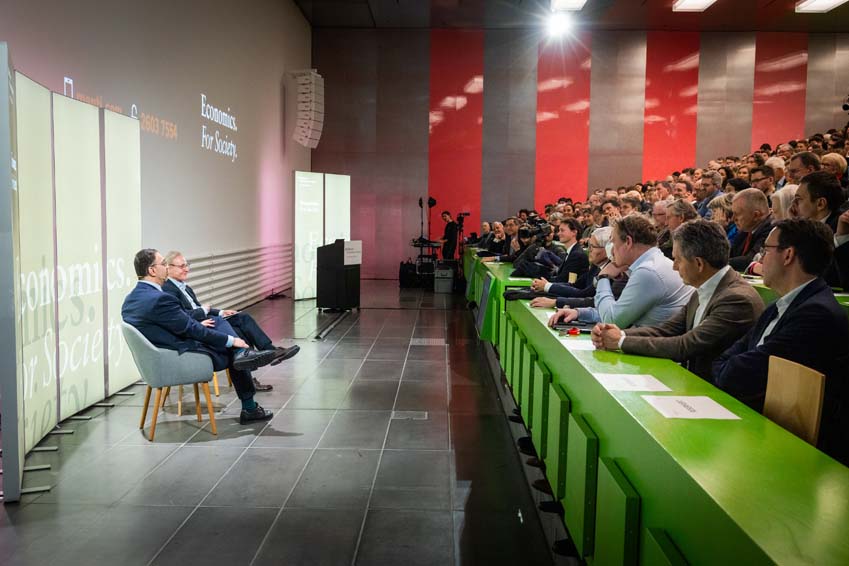
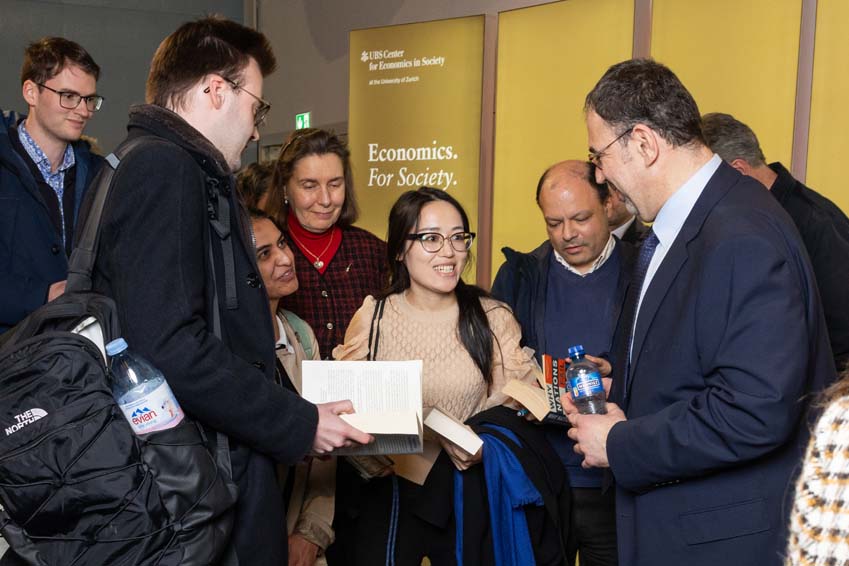
Outline
Daron Acemoğlu’s lecture delves into some of the most critical questions we face today: How will technological advancements, particularly in AI and automation, shape the future of our society? Will these innovations drive widespread prosperity, or will they deepen inequality and entrench power among a select few? Acemoğlu offers a unique perspective on these pressing issues. He argues that while technology holds immense transformative potential, its outcomes are not predetermined. The key question is: who will control this progress, and under what conditions will it unfold? At the heart of Acemoğlu’s vision is the belief that we can shape innovation to serve the broader public good. He shared his insights on how we, as a society, can navigate these challenges and create a future where technological progress benefits everyone.
Daron Acemoğlu’s lecture delves into some of the most critical questions we face today: How will technological advancements, particularly in AI and automation, shape the future of our society? Will these innovations drive widespread prosperity, or will they deepen inequality and entrench power among a select few? Acemoğlu offers a unique perspective on these pressing issues. He argues that while technology holds immense transformative potential, its outcomes are not predetermined. The key question is: who will control this progress, and under what conditions will it unfold? At the heart of Acemoğlu’s vision is the belief that we can shape innovation to serve the broader public good. He shared his insights on how we, as a society, can navigate these challenges and create a future where technological progress benefits everyone.
Speaker
Daron Acemoğlu is Elizabeth and James Killian Professor of Economics in the Department of Economics at the Massachusetts Institute of Technology and a member of the Economic Growth Program of the Canadian Institute of Advanced Research. His research covers a wide range of areas within economics, including political economy, economic development and growth, human capital theory, growth theory, innovation, search theory, network economics and learning. In the book "Why Nations Fail: The Origins of Power, Prosperity and Poverty" Daron Acemoğlu and James Robinson conclusively show that it is man-made political and economic institutions that underlie economic success (or the lack of it). Acemoğlu is the co-recipient of the 2024 Sveriges Riksbank Prize in Economic Sciences in Memory of Alfred Nobel for his groundbreaking work in institutional economics research.
Ernst Fehr received his doctorate from the University of Vienna in 1986. His work has shown how social motives shape the cooperation, negotiations and coordination among actors and how this affects the functioning of incentives, markets and organisations. His work identifies important conditions under which cooperation flourishes and breaks down. The work on the psychological foundations of incentives informs us about the merits and the limits of financial incentives for the compensation of employees. In other work he has shown the importance of corporate culture for the performance of firms. In more recent work he shows how social motives affect how people vote on issues related to the redistribution of incomes and how differences in people’s intrinsic patience is related to wealth inequality. His work has found large resonance inside and outside academia with more than 100’000 Google Scholar citations and his work has been mentioned many times in international and national newspapers.
Daron Acemoğlu is Elizabeth and James Killian Professor of Economics in the Department of Economics at the Massachusetts Institute of Technology and a member of the Economic Growth Program of the Canadian Institute of Advanced Research. His research covers a wide range of areas within economics, including political economy, economic development and growth, human capital theory, growth theory, innovation, search theory, network economics and learning. In the book "Why Nations Fail: The Origins of Power, Prosperity and Poverty" Daron Acemoğlu and James Robinson conclusively show that it is man-made political and economic institutions that underlie economic success (or the lack of it). Acemoğlu is the co-recipient of the 2024 Sveriges Riksbank Prize in Economic Sciences in Memory of Alfred Nobel for his groundbreaking work in institutional economics research.
Ernst Fehr received his doctorate from the University of Vienna in 1986. His work has shown how social motives shape the cooperation, negotiations and coordination among actors and how this affects the functioning of incentives, markets and organisations. His work identifies important conditions under which cooperation flourishes and breaks down. The work on the psychological foundations of incentives informs us about the merits and the limits of financial incentives for the compensation of employees. In other work he has shown the importance of corporate culture for the performance of firms. In more recent work he shows how social motives affect how people vote on issues related to the redistribution of incomes and how differences in people’s intrinsic patience is related to wealth inequality. His work has found large resonance inside and outside academia with more than 100’000 Google Scholar citations and his work has been mentioned many times in international and national newspapers.